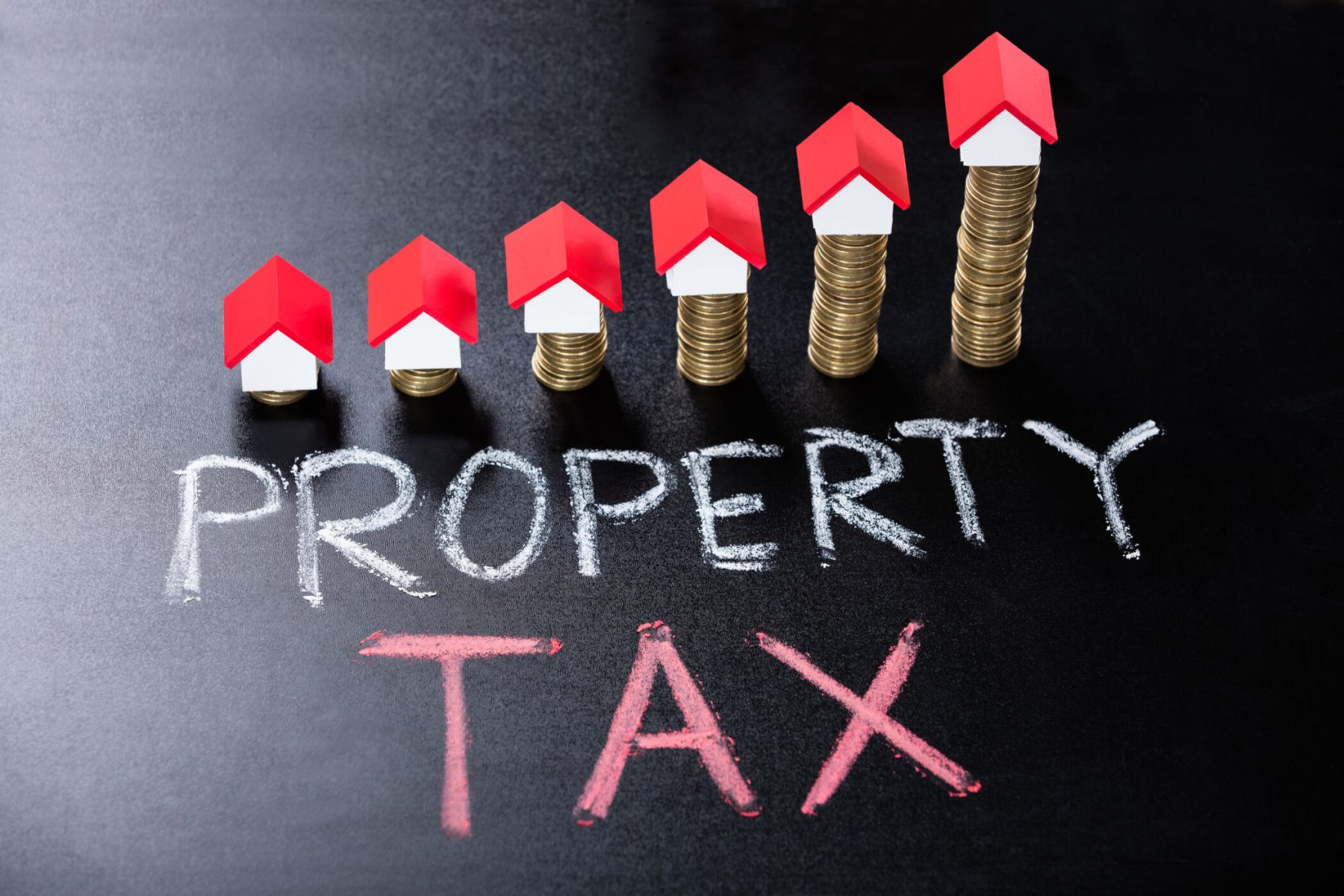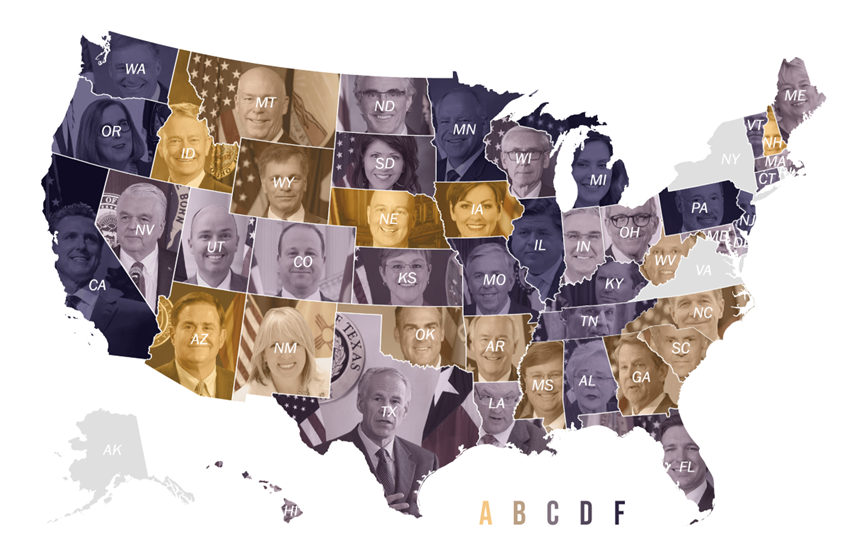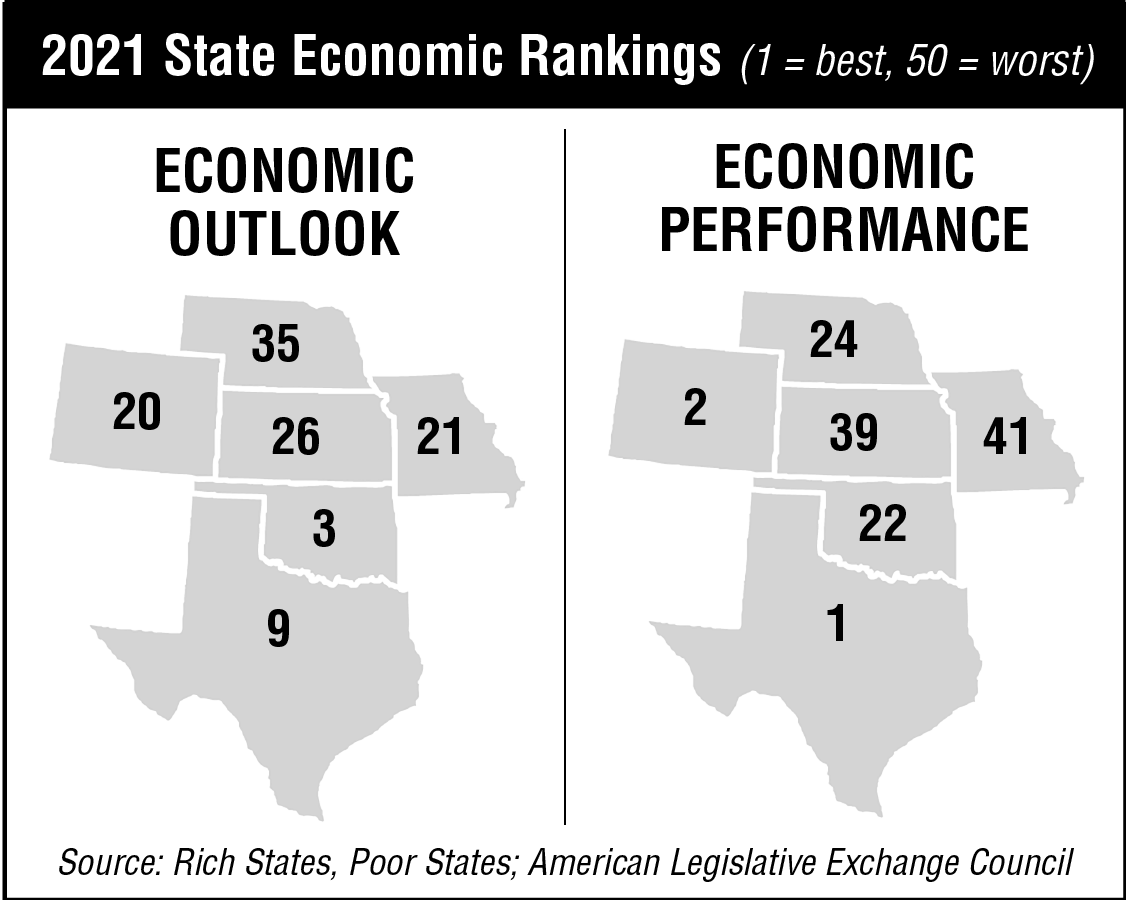Kansas’ mediocre economic growth over the last decade, coupled with a domestic-migration population loss over the same period, has driven the state into the bottom 12 in the Union in economic performance, according to the 16th annual Rich States, Poor States report released by the American Legislative Exchange Council (ALEC).
Based on the Sunflower State’s Gross Domestic Product growth (the amount of goods produced and sold), Net Domestic Migration (U.S. residents moving in and out of states), Non-Farm Payroll growth (employment), Kansas settles into 39th place for economic performance, wedged between Blue States New Jersey and Maryland. Ten years ago, it ranked #35. After four years of tax relief, roundly criticized by both political parties, the state finished a robust 20th in 2017. It came in at #34 last year.
The economic outlook for Kansas is no more optimistic, which, at #30, is its worst finish in the 16-year history of the ALEC study. The economic outlook index is based on 15 equally-weighted variables, including several taxation items that could improve the state’s outlook if Governor Kelly doesn’t veto SB 169:
- top marginal personal income tax rate (#22)
- personal income tax progressitivity (#29)
- top marginal corporate income tax rate (#28)
- property tax burden (#33)
- sales tax burden (338)
Kansas also fares poorly for recently legislated tax changes (#48) and the number of government employees per 10,000 population (#49), which is a significant driver of having high tax burdens.
Rich States, Poor States defines the “haves” from the “have-nots” in terms of economic vitality:
“Generally speaking, states that spend less — especially on income transfer programs — and states that tax less — particularly on productive activities such as working or investing — experience higher growth rates than states that tax and spend more.”
One of the authors, Jonathan Williams, ALEC’s Chief Economist and Executive Vice-President of Policy, urges Kansas legislators to read the economic tea leaves:.
“Kansas is unfortunately proving the adage that you can fall behind in economic competitiveness simply by standing still. This 16th edition of the Rich States, Poor States report ranks Kansas 30th for Economic Outlook. This marks Kansas’ worst score since we created the Rich States, Poor States annual survey of state competitiveness in 2008.
“Competitor states in the region, like Oklahoma, Arkansas, Missouri — and especially Iowa — make significant strides to enhance their competitiveness. Furthermore, the one perennially higher taxed state in the region, Nebraska, is likely to substantially reduce personal and corporate income taxes this session. Without a major breakthrough to enhance competitiveness from policymakers in Topeka, Kansas will very likely fall even further behind in the next several years.”




